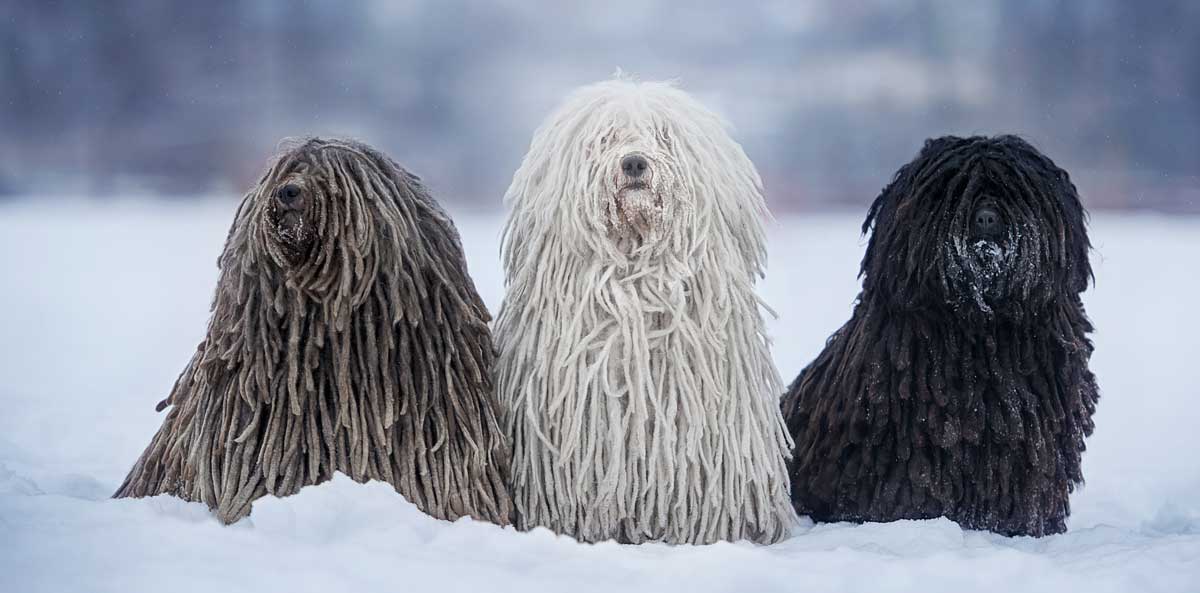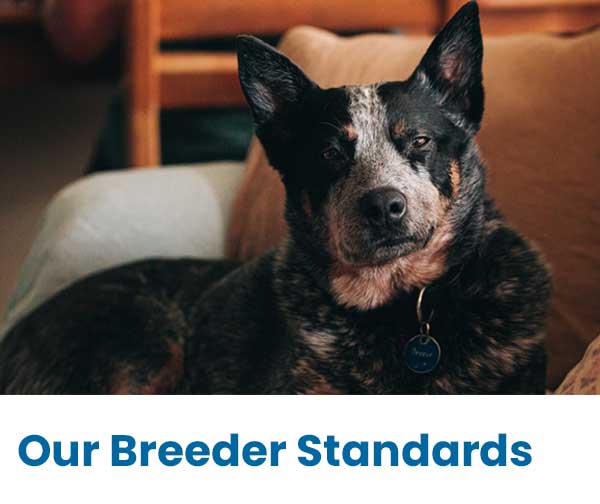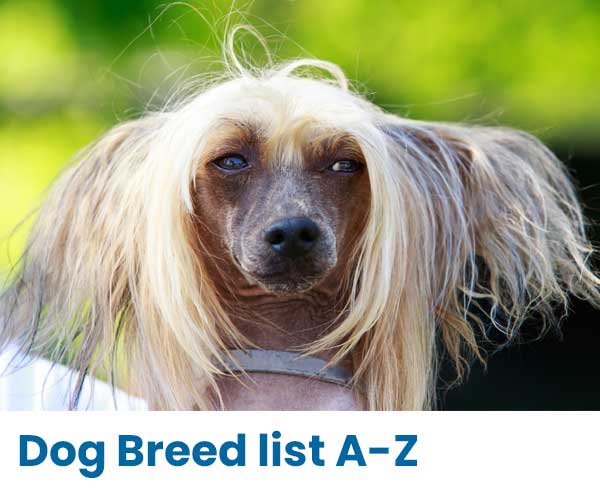Puli breed guide
The Puli is a strong, medium sized Hungarian livestock herding and guarding dog known for its unusual waterproof coat. The outer and undercoat of the Puli form dense cords like dreadlocks. The Puli does not shed.
A hardy breed with a loyalty and tenacious spirit, the Puli can be affectionate and home loving, an ideal companion. Their guarding tendencies make them naturally suspicious and therefore excellent watchdogs.
Puli Temperament
Pulis have an overwhelming desire to please, which in combination with their reasonable intelligence makes them highly trainable and able to learn new tasks quickly. They are devoted and form close bonds with their owners.
Like many shepherding breeds, Pulis are known for their strong-willed independence and determination. They can be very dominant and prefer to be top dog. Puli puppies must be taught early to be accepting of other dogs and pets, or they should be single dogs in a household without other pets.
Pulis have very high energy levels and despite their docile, heavy appearance and very thick coat they are very fast and agile and able to change directions instantly. Combined with their obedience, this agility makes them excellent candidates for athletic training.
Pulis retain their puppy-like playfulness even into old age.
The ideal owner for a Puli
The independence and obstinance of the breed mean that Pulis are only likely to accept strong-wiled and dominant individuals as their master. They require owners who can match their energy levels, invest time in training especially in puppyhood, and provide stimulating games and distractions. After a long walk or run Pulis are happy to settle on the couch with their owners.
Their high energy levels and dominant and boisterous nature mean that Pulis need to be carefully supervised with small children.
Training and socialisation
Even without training the Puli is a natural shepherd, and knows instinctively how to herd a flock of sheep or livestock. It is important to start training the Puli early, especially obedience. They are very independent, strong-willed and difficult to train in adulthood.
Because they are loyal to their master and their territory, Puli make very good guard dogs. They are naturally wary of strangers and will fearlessly try to drive any intruder away, although they will only rarely inflict actual injury.
The speed, agility and obedience of the well-trained and socialised Puli means that they excel in dog agility trials, obedience, Rally obedience, showmanship, flyball, tracking, and herding events.
How much space and exercise do Pulis need?
The Puli needs a lot of exercise and free space, preferably outdoors. While they can be trained and housebroken Puli are not well suited to be city or indoor pets. When restricted to closed spaces for long times, they grow restless and may become hyperactive or, instead, increasingly aloof and lazy.
Pulis are known to jump fences, and are commonly able to clear a six foot fence from a standing start, so a well fenced yard is vital to contain a Puli.
The Puli's corded coat helps it to withstand extremes of weather and ensures it is suited to all climates, although they should not be exercised or left outside in hot weather.
Pulis & Grooming
The Puli puppy is born with a short, soft, wavy coat which becomes progressively thicker as the puppy grows. By two months old the Puli puppy looks like a ball of ?u?. Between six and 12 months of age, the Puli's distinctive cords become more pronounced, dense and harsher, and the undercoat may begin to mat and require splitting. The cords can grow to reach the ground within four to six years. There can be significant variation in cord types, from flat ribbon-style cords to fat rounded cords.
The Puli coat requires regular maintenance including bathing and drying, which may take quite some time for a fully corded adult dog. Most grooming of the Puli's cords must be done by hand.
Puli colour variations
In Australia the most common colour is black, although the Puli is bred in a range of colours including black, rusty black, white, all shades of grey and apricot with or without a black mask.
Potential health issues in Pulis
The Puli has no major health problems, but reputable breeders will screen for Hip Dysplasia and eye abnormalities.
General facts about Pulis
Average life expectancy: 12-15 years
Average weight: Females: 10-13 kg, Males: 13-15 kg
Average height (at withers): Females: 36-42 cm, Males: 39-45 cm
Puli History
Pulis originated in Central Asia and migrated to Europe with the nomadic Magyar people who eventually settled in modern-day Hungary. They were bred to be the sole companion of Hungarian shepherds during the long days and months of isolation on the grazing lands of the vast Hungarian plain. Today the Puli is considered a national treasure of Hungary.
Puli FAQs
1. Can pulis see?
The Puli can see quite well through the curtain of cords hanging over its eyes. There is an old Hungarian folk saying that goes "The Puli, through his hair, sees better than you."
2. Do Pulis bite?
While the Puli is an excellent guard dog, they rarely bite. In part, their success and fearlessness in protecting livestock is due to the fact that their thick cords give them some protection from being bitten by wolves and other predators.
3. Do Pulis make good pets?
Yes! The Puli's proud, wilful nature means that they are best suited to experienced, confident owners who will take firm control and set consistent boundaries.
4. Are Pulis loyal?
Yes! Pulis have been bred for loyalty over many centuries and bond strongly to their master.
Fun facts about Pulis
- The correct, formal plural of Puli is Pulik rather than Pulis.
- The Puli coat can be combed out to an Afro style instead of the more typical dreadlocks.
- Different coloured Puli dogs worked at different times of the day. Light coloured dogs guarded flocks by night when they blended in with their charges. Dark coloured dogs were used to herd or guard flocks by day when they could be seen by their handlers.
- Mark Zuckerberg of Facebook owns a Puli.
References:
If you are a small scale ANKC registered breeder and would like to be listed here, just contact us or follow a few simple steps to add your details yourself.
We welcome helpful comments and contributions to information about this breed by email
View Puli breeders







